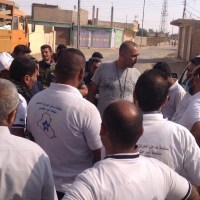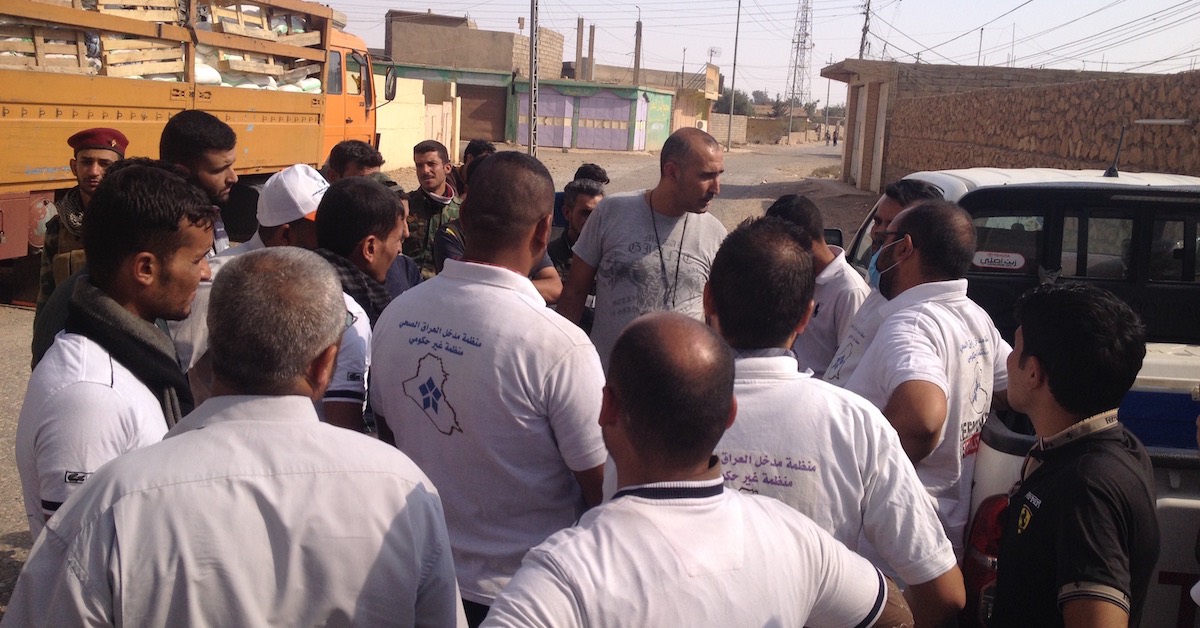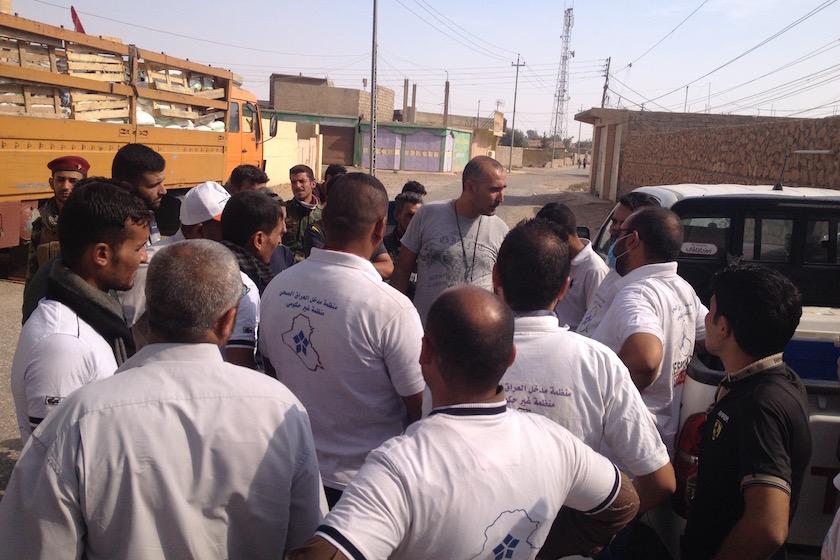
Rounding up children, women, and men for use as human shields.
Attacking newly “liberated” villages, killing those who welcome the arrival of Iraqi forces.
Poisoning the air with toxic oil and sulfur fires.
Ever since the battle for Mosul was announced last week, ISIS has grown increasingly desperate—and increasingly violent toward those caught in the crossfire.
Added to their list of targets this week: relief workers serving the very people who’ve been terrorized by ISIS for more than two years now.
The U.S. Embassy in Baghdad has released this warning:
U.S. Embassy Baghdad has received reports of attempts to kidnap U.S. citizen nongovernmental organization staff riding in vehicle convoys to provide aid to Mosul, Iraq. Militants demanded to see passports for all travelers in convoys and searched specifically for U.S. citizens.
Right now, the greatest numbers of people are fleeing to the south and east of Mosul, as we shared earlier this week—not to the relatively safer area north of Mosul, where most of the aid was stationed before the battle.
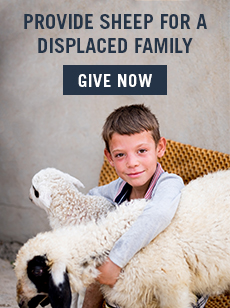
RELATED: Most Mosul Families Fleeing in the “Wrong” Direction
This means the greatest need is right in the heart of the active conflict zone. Our distributions this week have taken us within a few miles of the front lines to serve families who were just liberated from ISIS.
And as ISIS as proven before—with reprisal attacks on newly freed villages and their surprise assault on Kirkuk last weekend—just because an area has been “liberated” doesn’t mean it’s safe.
The situation around Mosul will be highly dangerous for weeks, if not months—both for those in need of aid and for those running to their side.
Thankfully, all of our staff is safe today. But we will continue pushing into the hard places—not because we aren’t afraid. But because we believe there’s something more important than being fearless. And that’s walking toward our fear and choosing to love anyway.
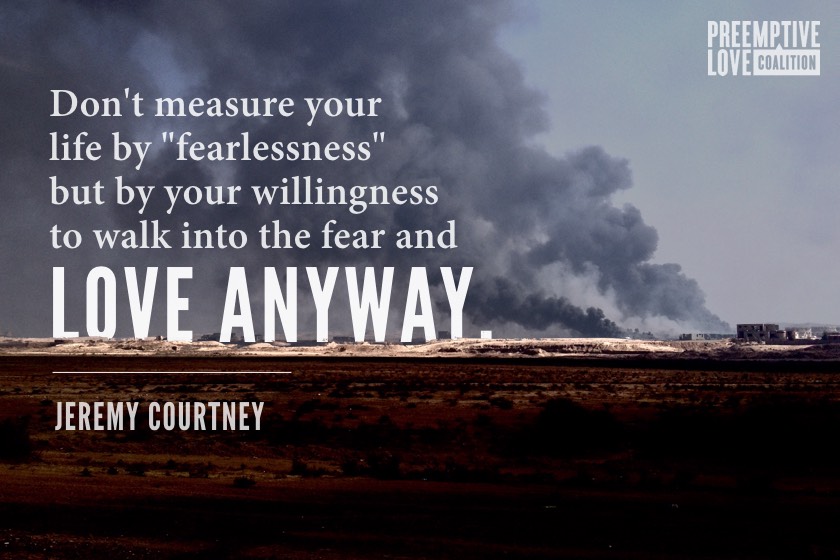
Don’t let fear have the last word in Mosul. Stand with families in the crossfire—make sure they have what they need to survive and rebuild after the battle.

